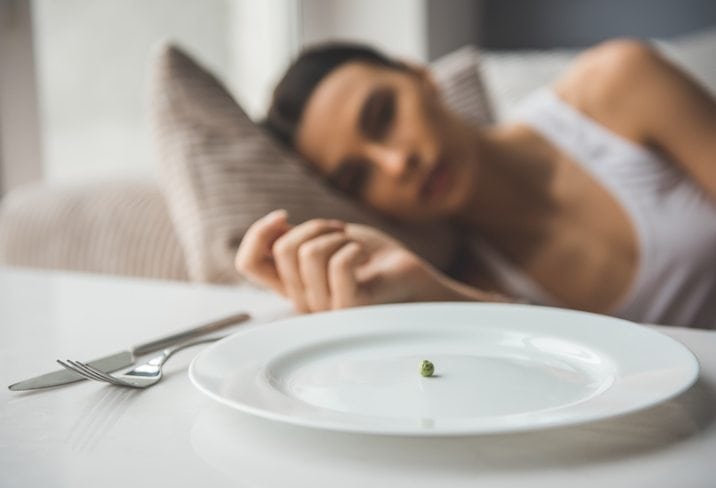First suicide, now anorexia.
Netflix certainly isn’t shying away from controversial topics. On the heels of the “13 Reasons Why” series on suicide, Netflix has created a new movie, “To the Bone,” that focuses on anorexia and debuts July 14.
“To the Bone” stars Lily Collins as Ellen, a young woman suffering from anorexia who, after multiple stays in inpatient treatment programs, reluctantly agrees to live in a group home overseen by an unconventional doctor, played by Keanu Reeves.
Like “13 Reasons Why,” it has received mixed reviews – some say it brings to the fore a taboo topic like anorexia, while others say it is graphic and could trigger vulnerable populations to follow through on anorexic thoughts.
Dr. Jennifer Zajac, who heads up the Eating Disorders Recovery Program at the Hartford HealthCare Behavioral Health Network’s Institute of Living, sees both sides in the trailer, which is all that has been released so far. On one hand it makes anorexia part of the public conversation, just like 13 reasons did for suicide. On the other, there is the possibility of it serving as a trigger for vulnerable populations.
“There are some positive spins, at least in the trailer, however there are also some really graphic visuals,” Zajac said in a recent interview.
Anorexia nervosa is an eating disorder characterized by weight loss (or lack of appropriate weight gain in growing children); difficulties maintaining an appropriate body weight for height, age, and stature; and, in many individuals, distorted body image. It can be a very serious mental illness, more likely in women, which is extremely hard to overcome.
Zajac said there are two groups of people to watch closely and talk to about the movie — adolescents during puberty and those transitioning to young adulthood — so the new movie could serve as a trigger for them. This could lead to more cases and visits to emergency departments.
Part drama, part dark comedy, the “To the Bone” trailer has already received nearly 2.4 million views on YouTube. Both its star, Lily Collins, and its director, Marti Noxon, have struggled with anorexia to various degrees.
Netflix posted the trailer on June 20, which led to an intense Twitter debate around whether the film glamorizes anorexia or whether it could be a trigger for those with eating disorders. “13 Reasons Why” sparked similar controversy with its focus on a teenager’s suicide. Noxon, for one, is adamant that this film is not a glorification of the disease she herself has worked to overcome.
“My goal with the film was not to glamorize EDs (eating disorders), but to serve as a conversation starter about an issue that is all too often clouded by secrecy and misconceptions,” Noxon tweeted. “I hope that by casting a little light into the darkness of this disease we can achieve greater understanding and guide people to help if they need it.”
Supporters say it’s an authentic portrayal of the reality of eating disorders, and is sparking discussion on a topic that people usually don’t talk about. The trailer shows Ellen ticking off calorie counts for the items on her dinner plate, a close-up of her very thin frame – which is very graphic but also might make someone rethink their need to lose too much weight.
Signs and symptoms of eating disorders:
Early Warning Signs
When your loved one
- Seems obsessed with weight
- Weighs herself more than once a day
- Exercises alone, for long periods
- Eats or refuses food when sad or upset
- Counts calories or fat grams
- Avoids eating with others
- Tries to be perfect, always pleasing others
If many of these are true, get help as a family to work on self-esteem, and emotional expressing to prevent a more serious problem.
More Serious Signs
When your loved one:
- Loses weight or goes up and down in weight
- Eats considerably less, avoiding meals as much as possible
- Becomes secretive about eating
- Binges or eats till she feels sick or exhausted
- Cooks for others but won’t eat it
- Becomes upset when unable to exercise
- Appears depressed, moody, irritable, or isolated
Find a dietitian familiar with eating disorders and a therapist to assess the situation and make recommendations for treatment.
Definite Distress Signals
When your loved one:
- Fasts or severely restricts food intake
- Hides or sneaks food
- Spends excessive time in the bathroom after meals
- Vomits, takes laxatives, diet pills or other medications to lose weight
- Has lost a significant amount of weight is tired and depressed
- Can’t concentrate
- Has irregular periods, swollen glands or joints, broken blood vessels or bloodshot eyes
- Wears layers of clothes even in warm weather
- Faints or passes out
If you or a loved one needs help battling an eating disorder, talk to your primary care physician, or contact the Institute of Living’s Eating Disorders Center at 860.545.7200, or toll free 1.800.673.2411
Source: Institute of Living Eating Disorders Center

